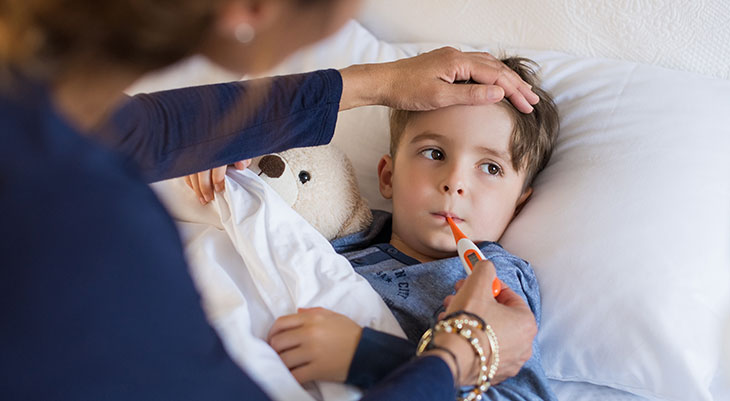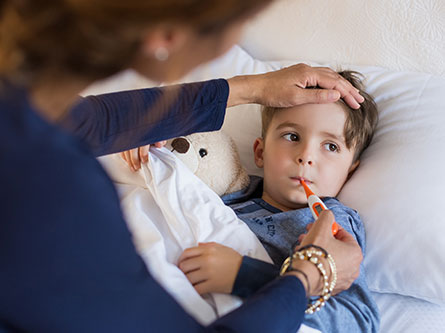
Strep throat is caused by a bacteria (Streptococcus pyogenes). It's more common in children than adults, but people who are in contact with kids a lot are at increased risk.
While those with strep throat can get better on their own, antibiotics help speed up the process. Here's some information that might be helpful if you or your child gets sick with this illness.
What are the most common symptoms of strep throat?
Strep throat symptoms people may experience in their mouth and throat include:
- Painful swallowing
- Red spots on the roof of the mouth
- Sore throat, often red with white patches
- Swollen lymph nodes in the neck
People infected with strep may experience other symptoms, including:
- Body aches
- Chills
- Headache
- Fever of 101° or higher
- Loss of appetite
- Nausea and vomiting
- Stomach pain
Find out how to tell if it's strep throat or sore throat
How contagious is strep and how is strep throat spread?
The bacteria that causes strep throat is very contagious. It's typically spread through respiratory droplets or direct contact.
The bacteria can spread via respiratory droplets when people talk, cough or sneeze. The droplets are then put into the air. Other people can breathe them in or may touch an object that has droplets on it and then touch their nose or mouth.
Direct contact spread can happen when someone touches the sores of someone who is sick or comes into contact with fluid from the sores.
Some people infected with the bacteria that causes strep have no symptoms. These people are less contagious than those who show symptoms, according to the Centers for Disease Control and Prevention (CDC).
Learn more about bacterial infections, symptoms and treatments
How long is strep throat contagious?
People who start taking antibiotics to clear up strep throat become less contagious in about 24 hours. However, people who don't take antibiotics can spread the bacteria for a couple weeks.
It usually takes about 2-5 days after exposure to the bacteria to start experiencing symptoms.
What are some tips for recovering from strep throat?
If you believe you or a loved one has strep throat, it's best to talk to a health care provider. They will likely recommend a rapid strep test or a throat culture.
Once a diagnosis of strep throat is confirmed, a provider may prescribe an antibiotic treatment. Most treatments last for about 10 days. People typically start to feel better after about 1 or 2 days of treatment. You can also use over-the-counter pain relievers, such as nonsteroidal anti-inflammatory drugs (NSAIDs like ibuprofen) and acetaminophen, to help relieve symptoms.
What are ways to help prevent the spread of strep throat?
If you or a loved one has strep throat, stay home from work, school and other activities until the fever is gone. You should also take antibiotics for at least 24 hours before returning to regular activities. Talk to your health care provider about how long you should stay home.
In the meantime, make sure you cover your coughs and sneezes with a tissue or sleeve and not your hands. Wash your hands often to keep from spreading to others.
Wash cups, utensils and any other items that a sick person has touched to prevent strep from spreading.
Learn more about preventing strep infection
This blog was medically reviewed by Dean Blumberg, chief of pediatric infectious diseases.




